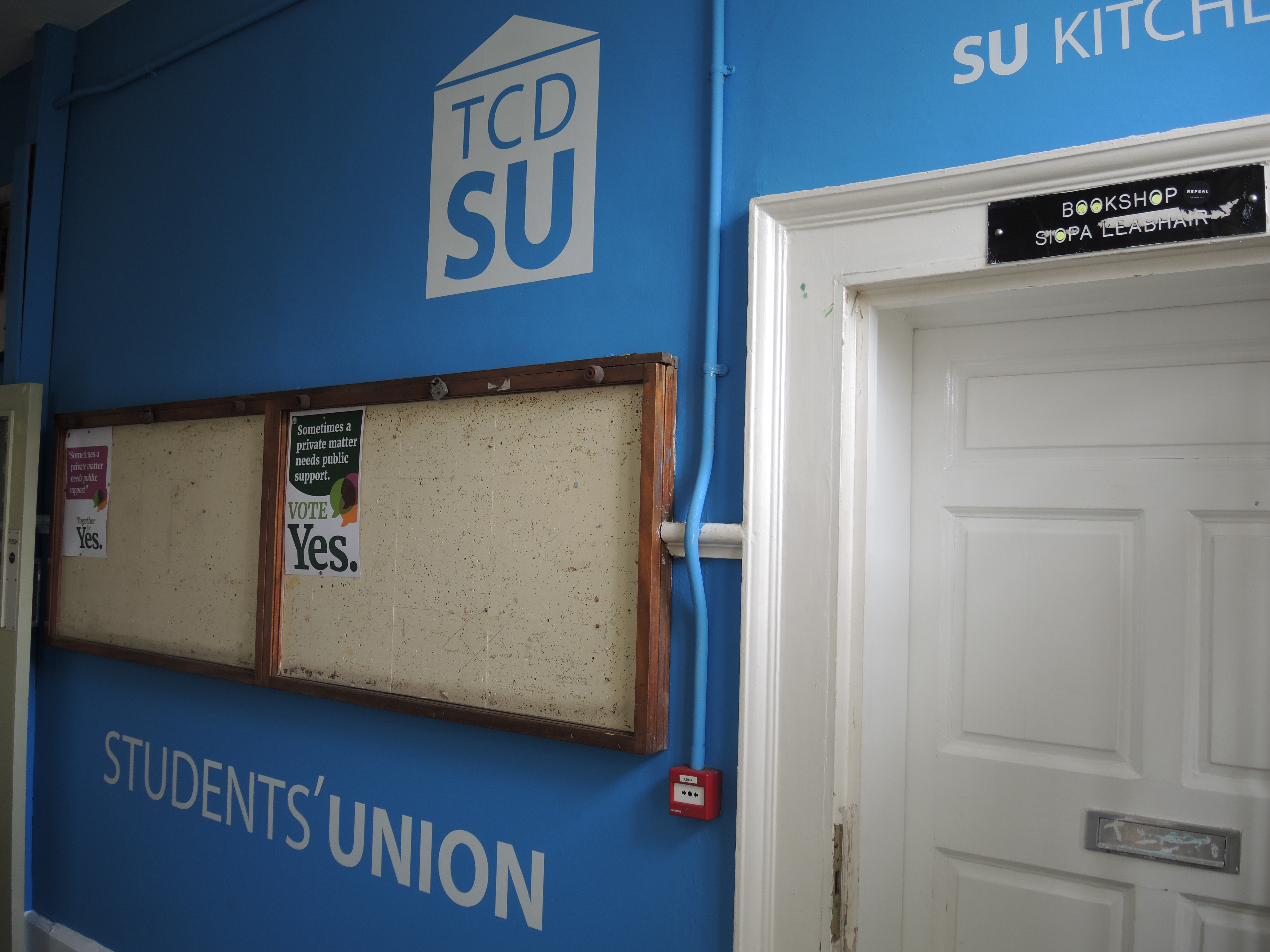A statement from Trinity College Dublin Students’ Union (TCDSU) this evening clarified a number of constitutional matters relating to the impeachment of the Editor of the University Times (UT).
In the statement, the chair of the Electoral Commission (EC) which is responsible for the interpretation of the TCDSU constitution, refuted claims that members of UT staff had “begun impeachment proceedings” against the editor, saying that no mechanisms exist in the TCDSU constitution to do so.
The statement added that “The Editor is not a Sabbatical Officer of the Union and is not subject to the removal procedures outlined in section 6.2.1 of the Constitution.”
The Editor of UT is a position elected by a popular vote of the entire student body, alongside the sabbatical officers of TCDSU.
The statement went on to say that “UT is not a Union body, but an editorially independent newspaper with freedom of governance, which receives funding via TCDSU, as per Chapter 10 of the TCDSU Constitution”.
UT does not have its own constitution. It does, however, have a section in the TCDSU constitution.
“As such, it would be inappropriate for the Union to have the power to remove the Editor and a violation of the paper’s independence,” the statement continued.
The election of the UT Editor is overseen by the EC of TCDSU, who have the authority to issue strikes to candidates who violate electoral rules.
In 2021, UT Editor candidate Peter Caddle received a minor strike from the EC for canvassing outside of campaign hours, indicating that the EC do exercise authority over the election of editors outside of facilitating the voting process.
The TCDSU Constitution does not explicitly state that the UT Editor is a sabbatical officer of the union. The constitution does define the president, education officer, communications and marketing officer, welfare and entertainment officer as sabbatical positions under section 3.4. The constitution does not define it as a union body, despite the UT editor elections being held alongside the sabbatical officer elections, and the union funding the publication.
Union bodies are mentioned in Schedule 3 and 4, twice in the former and once in the latter. They are also mentioned in Schedule 6, on three occasions. The constitution referring to union bodies usually implies bodies such as the EC or the Oversight Commission (OC).
According to the TCDSU constitution, the editor of UT “must present a detailed fully costed budget to the Union Forum at its first meeting at the first meeting of the academic year” which may then be “accepted or rejected, but not altered” by the policymaking body.
Members of a union body may be impeached, however, this is not done by a referendum. Members of union bodies are impeached by a vote brought to the TCDSU Council. A member of an ad hoc body or subcommittee of Council or the Union Forum may also be impeached by a two thirds majority of those present at any meeting of that body.
UT is funded by TCDSU, and the newspaper presents their budget to the Union Forum every year. This includes sabbatical officers, faculty convenors and part-time officers from TCDSU.
Last year, UT’s budget proposal was rejected by Union Forum. The same happened in 2018 and 2017.
TCDSU is also responsible for the payment of wages to the UT Editor.
In the constitution of Trinity College Dublin Students Union (TCDSU) it details that a “sabbatical officer shall be removed from office by the passing of a resolution by referendum to impeach that officer”. By the EC statement, this does not cover the UT Editor. The EC, in the constitution, reserves the right to interpret the constitution.
UT has its own section of the constitution. Within that section it does not detail an impeachment process specific to the Editor. The constitution states that: “The election for the position of The University Times editor shall be coordinated by the Electoral Commission alongside the annual sabbatical officer elections.”
The constitution also states that “the election for the position of The University Times shall be subject to election regulations as set out in Schedule 3”. Schedule 3 contains the election rules covering all TCDSU elections and referenda, as specified in the document.
TCDSU is one of the four capitated bodies which are funded by Trinity. The others include Trinity Publications, DUCAC, and the CSC.
UT was founded in 2009 by then-TCDSU Communications and Marketing Officer Rob Donohoe. For the first five years of the paper’s existence, the union’s comms officer also served as its editor. At this stage, the communication officer would have been able to be impeached, alongside their role as editor. Following a constitutional review in 2014, the office of editor became a separate, paid sabbatical role. Sections of the constitution were amended and updated in November 2020. In 2014, when the constitution was written, there was no reference made to the impeachment of the UT Editor.
In 2019, following controversy over UT staff covertly recording audio of a student apartment, a petition was circulated which would have severely restricted the newspaper’s funding. The petition received the required number of signatures, but the proposal was defeated at referendum. After the No side was sanctioned for receiving external endorsements for its campaign, UT threatened the TCDSU Electoral Commission with legal action.






